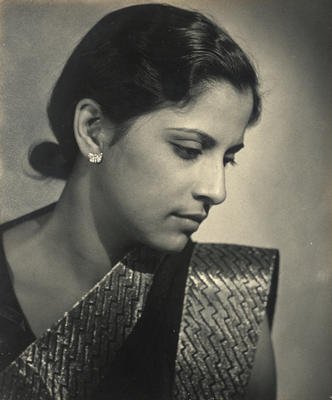
Attia Hosain
‐
Writer and broadcaster
Place of birth
Date of arrival to Britain
Date of time spent in Britain
1947–98
About
Attia Hosain was born into a wealthy landowning family in northern India. Her father was educated at Cambridge University, and her mother was the founder of an institute for women's education and welfare. Hosain attended the Isabella Thoburn College at the University of Lucknow, becoming the first woman from a landowning family to graduate in 1933. She also undertook private tuition in Urdu and Persian at home, where she was brought up according to the Muslim tradition. Influenced by the left-wing, nationalist politics of her Cambridge-educated brother and his friends, Hosain became involved with the All-India Progressive Writers’ Association, a group of socialist writers which included Ahmed Ali, Mulk Raj Anand and Sajjad Zaheer. Encouraged by the poet and political activist Sarojini Naidu, she attended the 1933 All India Women’s Conference in Calcutta, reporting on it for Lucknow and Calcutta newspapers. In this period, she also began to write short stories.
In 1947 Hosain left India for Britain with her husband, Ali Bahadur Habibullah, who having undertaken war repatriation work had been appointed before August 1947 to the newly formed Indian High Commission in London. The couple had two children, and Hosain chose to remain in Britain. She continued to write and began work as a broadcaster, presenting a women's programme for the Indian Section of the Eastern Service of the BBC from 1949. During her time at the BBC, she broadcast on a wide range of topics, from art to music to religion to cinema. As well as reading scripts, she participated in discussion programmes and acted as a roving reporter for the Weekend Review. In 1953 she published her first work of fiction, a collection of short stories titled Phoenix Fled. This was followed in 1961 by her only novel, Sunlight on a Broken Column.
All India Women’s Conference, Calcutta, 1933
Participant in the First All-India Progressive Writers’ Conference, Lucknow, 1936
Acted in Peter Mayne’s West End play The Bird of Time, London, 1961
Ahmed Ali, Mulk Raj Anand, Z. A. Bokhari, Cecil Day Lewis, Compton MacKenzie, Sarojini Naidu, George Orwell, Iqbal Singh, Sajjad Zaheer.
Phoenix Fled (London: Chatto & Windus, 1953)
Sunlight on a Broken Column (London: Chatto & Windus, 1961)
'Of Meals and Memories', in Antonia Till (ed.) Loaves and Wishes: Writers Writing on Food (London: Virago, 1992), pp. 141–6
‘Attia Hosain’, SALIDAA: South Asia Diaspora Literature and Arts Archive, https://sadaa.co.uk/archive/literature/attia-hossain
Bharucha, Nilufer E., ‘I Am a Universalist-Humanist’, Biblio 3.7–8 (July – August 1998)
Bondi, Laura, ‘An Image of India by an Indian Woman: Attia Hosain’s Life and Fiction’, unpublished MA thesis (University Degli Studio Venezia, 1993)
Burton, Antoinette, Dwelling in the Archive: Women Writing House, Home, and History in Late Colonial India (Oxford: Oxford University Press, 2003)
Desai, Anita, ‘Hosain, Attia Shahid’, Oxford Dictionary of National Biography (Oxford University Press, 2004) [https://www.oxforddnb.com/view/article/69617]
Holmstrom, Lakshmi, ‘Attia Hosain: Her Life and Work’, Indian Review of Books 8–9 (1991)
Six radio scripts broadcast by Hosain, BBC Written Archives Centre, Caversham Park, Reading
Image credit
South Asian Diaspora Literature and Arts Archive
